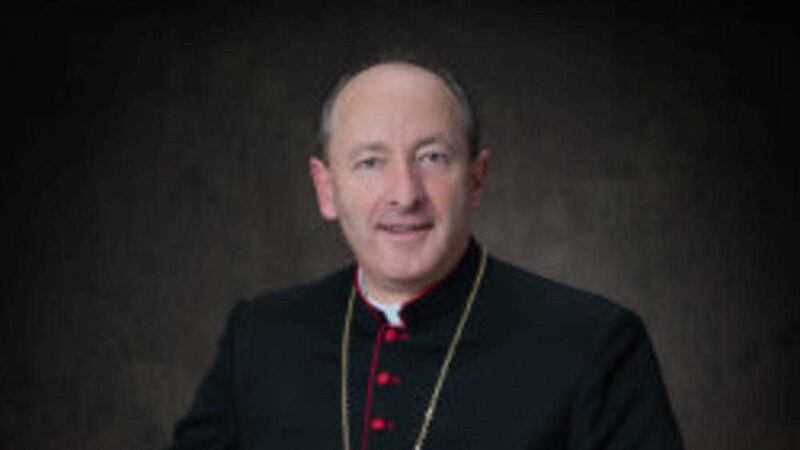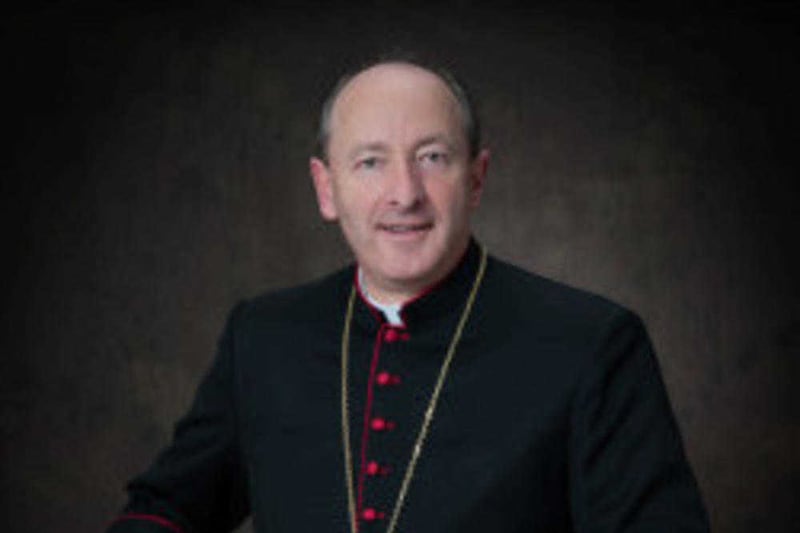The purpose of the Evangelium Conference is to spread the richness of the Catholic faith in the modern world.
The Lord has been very good to us all in the past few days.
The Focolare Marieapolis in Dungarvan with around 250 participants, the Youth 2000 summer retreat in Roscrea with something around 800, the Knockadoon Fith Camp run by the Dominicans, eight men ordained for the Dominican Order, and now here in Maynooth the Evangelium Conference.
These are all examples of the green shoots of faith which the Spirit is making grow. They are all examples of the new evangelization called for many years ago by Pope Saint John Paul II.
But what is the new evangelization? Primary evangelization is the proclaiming of the Gospel to those who have never heard it. Now in countries which have lost their fervour for the faith a new evangelization is needed.
Pope Saint John Paul used the expression new evangelization for the first time in June of 1979 on his first visit as pope to his native land. He was speaking in Nova Huta, a district of Krakow, which had been built by the communists who deliberately excluded any religious element to this new development. No church was allowed to be built. There was no need of God.
In 1983 in Port au Prince in Haiti Pope Saint John Paul called for a new evangelization of the Americas. He called for this to begin in 1992. Why 1992? Because the first evangelization of the Americas took place after the discovery of America in 1492. Five centuries earlier the great Catholic countries were Spain, France Italy. Now the great Catholic countries are Brazil, Argentina, Mexico, even one can say United States. Europe has become tired in the faith in many places.
We need a new evangelization here in Ireland. We all know that Irish society faces real and present challenges, and on many fronts. I am not going to go through the list of woes, we all know them I think. For example, I heard recently from the father of a 17-year-old secondary school girl and who is studying in Ireland. The student was taken aback when she realised that in her new environment promiscuity, fuelled by a peer pressure to take alcohol and drugs, prevailed amongst most of her contemporaries.
The number of people in Ireland who have undergone divorce or separation has shown massive growth since 1986. It has increased six fold in that time. It has increased by 47,332 since Census 2006 alone. In fact, the rate of suicide in Ireland hit its peak in 2001 at 13.5 suicides per 100,000 people and by 2004 a `Celtic Tiger' year in which economic growth was running at 4.6 per cent, the rate still remained at 12.2.
We also must accept that in Ireland at the moment faithful Catholics are in the minority. We can point to recent referenda to prove our case. I think that this is widely accepted. What do we do? One very helpful approach to this question is to learn from the approach of Pope Benedict XVI - the `creative minority'.
In the lives of so many of the saints we see how they battled against the majority sometimes from within their own orders or dioceses to bring about renewal: Saints Bernard, Benedict, Francis of Assisi, Simon Stock, Teresa of Avila, John of the Cross, the Cure of Ars, Francis de Sales, Josemaria Escriva. This is Benedict's vision of the Catholic Church's role in contemporary Europe. In fact, it's probably the only viable strategy.
One false alternative would be for the Church to `ghettoize' itself. This is not the kind of attitude Pope Benedict was talking about when he used the term creative minority. He is not talking about circling the wagons, about cutting oneself off from the world and surrounding oneself with like-minded people. It means instead engaging with the world. Benedict's creative minority strategy recognizes, first, that to be an active Catholic in Europe is now a choice rather than a matter of social conformity.
This means practicing European Catholics in the future will be active believers because they have chosen and want to live the Church's teaching.
Second, the creative minority approach isn't just for Catholics. It attracts non-Catholics equally convinced that modern society has fundamental problems that cannot be solved by government spending. Creative minorities will play the essential role in restoring a Christian soul to Europe, and in defending Christian values against secularism and relativism.
So what does the creative minority have to offer to people? What we have to offer is to tell the world that there is only "One Thing Necessary". God.
The creative minority is the way in which God has throughout history brought about reform. He depends on the few. That has always been the way change occurred in the Church.
We have to be saints. And we have to know that there will be challenge and fierce challenge at times. As Pope Francis has famously said about the Church: It is like a field hospital. That is a military term. We are involved in a war. Christ's followers will get bruised and battered. There will be opposition even hatred, we will meet the Cross - Calvary was a messy place. And God is in charge. He is the One who gives us strength and hope. And we must realize this fully.
Saint Paul writes in Romans 8:38-39: "For I am sure that neither death nor life, nor angels nor rulers, nor things present nor things to come, nor powers, nor height nor depth, nor anything else in all creation, will be able to separate us from the love of God in Christ Jesus our Lord."
And that is the most key thing of all: our personal relationship with Jesus Christ.
We are called to bring Christ to others - to be apostles. If we are not apostolic we do not know Christ. Apostolate is the overflow of the interior life. One naturally follows the other.
And I do not have to save the whole world. I start where God has put me, with God's grace changing hearts, one by one.
:: Taken from an address delivered at the 2016 Evangelium Conference in Maynooth Bishop Alphonsus Cullinan, Bishop of Waterford & Lismore.



